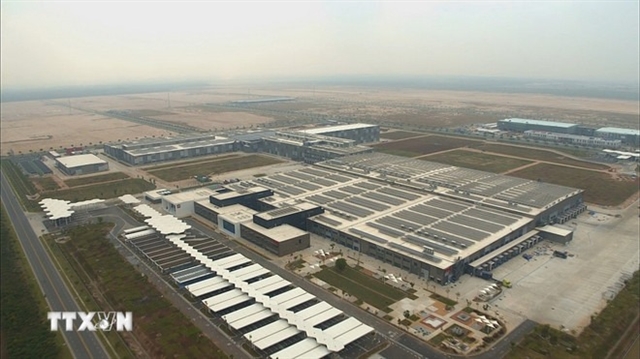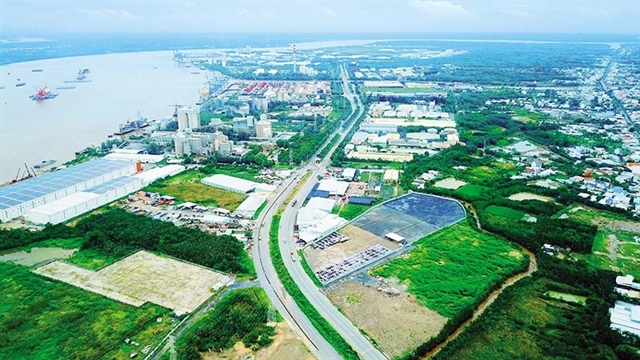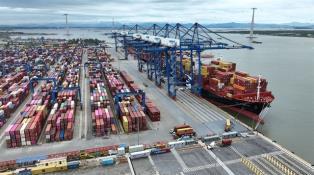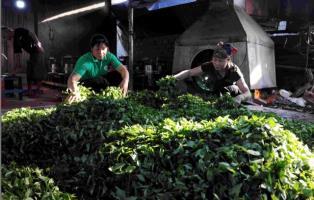HCM City attracted US$6.2 billion worth of foreign direct investment in the first seven months of this year, a 45 per cent increase following last year’s dip. The surge signals renewed trust among foreign investors and the city’s potential for stronger growth.

HCM CITY – HCM City attracted US$6.2 billion worth of foreign direct investment in the first seven months of this year, a 45 per cent increase following last year’s dip.
The surge signals renewed trust among foreign investors and the city’s potential for stronger growth.
Nguyễn Công Vinh, director of the city Department of Finance, said licences were issued to 1,073 projects with capital of $1.3 billion.
Another 296 licensed in the past increased their investment by $2.37 billion.
The city also approved 1,323 cases of foreign investors buying around $2.52 billion worth of stakes in companies.
Export processing zones and industrial parks in the city also recorded a steady flow of FDI, with high tech projects seeing a major rise in investment.
Notable projects include a $42 million microchip manufacturing plant by BE Semiconductor Industries NV and an additional $48 million investment in the Amazon Data Services Việt Nam project.
At a recent meeting to review the city’s socio-economic performance, Nguyễn Văn Được, chairman of its People’s Committee, said the FDI growth is a promising sign for the economy and evidence of a vibrant and attractive investment landscape.
He said this year city authorities have welcomed domestic and foreign investors exploring opportunities in the city, such as Intel Cooperation (US), AEON (Japan), GS Engineering and Construction (South Korea), the Astana International Financial Centre (Kazakhstan), and the Argentinian Ministry of Economy.
The city sent delegations to Singapore and Malaysia to promote investment and participate in international fairs, he said.
The city had attracted large investments in various key industries, a positive for future economic growth, he said.
This year’s strong inflows have contrasted sharply with last year’s $2.2 billion, which marked a 39.5 per cent decline from 2023, attributed to a shortage of industrial lands.
The situation has improved dramatically following the recent merger of HCM City with Bình Dương and Bà Rịa-Vũng Tàu provinces.

The expanded city now has more potential than ever: the former HCM City remains a financial hub with strengths in high-quality services, advanced technology, innovative education and healthcare; the erstwhile Bình Dương contributes its processing and manufacturing base with modern industrial parks and a transparent investment environment; and Bà Rịa-Vũng Tàu offers advantages in energy production, ports and tourism.
The merger has created value chains for production, logistics, consumption, and premium services on an integrated, smart foundation.
According to the city Department of Finance, the newly expanded HCM City hopes to attract FDI worth $10.44 billion this year.
Authorities are expediting legal procedures for projects and key programmes that will form a foundation for sustainable development and enhance urban competitiveness.
By quickly carrying out planned projects, the city hopes to address infrastructure bottlenecks and attract strategic FDI in high-technology, finance, and logistics.
It plans to further improve the investment environment to support businesses and ensure consistency and transparency in investment policies.
Experts said a better investment environment is crucial to attracting capital amid fierce competition, particularly due to the US’s tariff policies.
They said the FDI race is no longer about offering the most concessions, but about creating faster, clearer and more favourable conditions.
Foreign investors now place greater importance on the proactiveness of local authorities, transparency in legal procedures, infrastructure connectivity, and commitments to improve the investment environment, they added. – VNS





